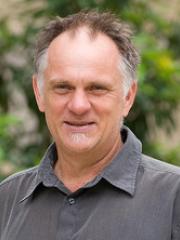Professor Rod Fensham

Researcher biography
In 2020 I formed the Fellowship of the Spring, an international consortium of people concerned with understanding dryland springs and securing their preservation. We are about 40 people spanning 25 countries from a broad range of disciplines, who collaborate with particular attention to fostering work in countries with disadvantage. This platform, focussed on the concept of an 'oasis' provides for multi-cultural and multi-disciplinary exchange. The Felloship of the Spring has its foundation in quantitative field ecology in Queensland. I have ongoing research interest in threatened plant species assessment, and other interests relating to avoiding extinction and better managing our natural resources. I have far more ideas than capacity to fulfil them, so welcome committed post-grads to discuss potential projects.
Research themes:
Artesian springs
Artesian springs are isolated oases in a sea of arid-lands containing weird and wonderful endemic creatures including snails, crustacea, plants and fish. The springs provide a focus for research relating to their hydrological function, cultural significance conservation, optimum management and biogeographic history.
Threatened species
Applied ecology relating to the ecology of threatened species generates insights into their habitat and leads to tangible conservation outcomes.
